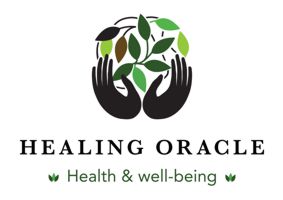Magnesium is known as the master mineral. A lack of this essential nutrient causes fundamental health problems, with ranging symptoms. Many of them can be misdiagnosed as other conditions and this effects most people in the modern world. Unless you are aware of these problems, the chances are you are suffering from Magnesium deficiency.
Please also see these related articles:
Magnesium is the most powerful relaxant, why you must avoid Magnesium Stearate and how to make Magnesium Oil
Original article: Organic Home Remedies
It’s astonishing how a deficiency of only one supplement can have such an enormous effect on your overall health. The standard American eating regimen has changed definitely in the course of the most recent couple of decades, causing an ascent in medical issues that were not that common before. Chronic nutrient deficiencies are common these days, leaving numerous individuals in a condition of weakness and very poor health.
Magnesium is a standout among the most well-known nutritional deficiencies. It tends to be hard to get from food sources and the body depends vigorously on magnesium for some of the most important processes. See whether you have a magnesium deficiency and how can you get back on the path that leads to great health.
On the off chance that you don’t get enough magnesium on daily basis, you’re doing your body a major damage. This mineral is utilized in more than 300 real chemical reactions and processes in our body, so not getting enough might be seriously upsetting and damaging your overall health and the potential of your body.
For What Reason is it so Hard to Get Enough Magnesium?
There are a couple of various reasons that magnesium deficiency became this common!
1. You’re not eating enough foods that are rich in magnesium, you need to include more into your everyday diet. Magnesium is found normally in foods such as beans, seeds, nuts, mackerel, and dark leafy greens — all foods that don’t assume a major job in the present day diets that we have. Also huge amounts of magnesium can be found in pure magnesium oil or some specific supplements.
2. Being exposed to aluminum will make the absorption of magnesium a lot harder.
The normal 21st-century human is constantly exposed to aluminum every single day: through medications, deodorants through cookware, and this is very hard to avoid, since it is necessary. The aluminum is interfering with the ability of your body to absorb magnesium, up to five times!
3. Individuals are eating more dairy than ever before. And according to what scientists said, a diet that is rich in phosphorus and calcium, will only make your body require larger amounts of magnesium. The measure of magnesium every individual needs is not a constant or a universal amount for everybody, such huge numbers of individuals may believe they’re getting enough, but due to their lifestyle and everyday diet, they’re missing the whole mark.
4. Our industrial farming processes have had a big impact on the amount of magnesium we ccan now find in our foods, and Researchers note the reduction is across the board, since 1940 for example:
- Vegetables 24% less
- Rice 83% less
- white flour 80% less
Our unhealthy intestines and Gut bacteria
Extra factors include gastrointestinal issues like: renal disorders, Crohn’s disease, heavy alcohol consumption and being a senior. Each and every one of these factors can easily cause a magnesium deficiency in our body.
32 Signs That You Have a Magnesium Deficiency
- Nausea
- Respiratory issues
- Type-2 diabetes
- Fatigue
- Constipation
- Osteoporosis
- Tremors
- Bowel Disease
- Calcium Deficiency
- High blood pressure
- Kidney and liver diseases
- Asthma
- Difficulty swallowing
- Blood clots
- Depression
- Hypertension
- Heart issues
- Migraines
- Muscle cramps
- Hypoglycaemia
- Tooth Decay
- Insomnia
- Personality changes — sometimes very identical to depression, mood disorders and anxiety symptoms.
- Reynaud’s syndrome — Can cause numbness in the extremities, skin color changes due to body temperature, and cold toes and fingers.
- Childbearing/Fertility issues — Staying or getting pregnant, preterm labor, preeclampsia.
HOW TO FIX THE MAGNESIUM DEFICIENCY PROBLEM NOW
Magnesium Rich Foods Include:
- Navy beans
- Sunflower seeds
- Cashews
- Black beans
- Quinoa
- Sesame seeds
- Swiss chard
- Spinach
- Pumpkin seeds
Adding more foods to your everyday diet that are rich in magnesium, can enable you to boost your magnesium levels easily. Whether you attempt to get lots of different types of food, you may still be unable to hit that daily recommended dose of magnesium.
That is when supplementation takes place, regardless is it transdermal or oral. With regards to oral supplements, we prescribe a progressively bioavailable type,
for example, magnesium citrate, malate or glycinate, and to go for dosages of 200mg or more.
Magnesium Orotate: Please see this related article for information on the right types of Magnesium
In conclusion, while more research still should be conducted as this is a more up to date type of magnesium, numerous healthcare professionals are currently prescribing topical magnesium to support serum magnesium levels. The last has the ability of giving relief by relieving the pain.
Source: Organic Home Remedies
Please also see these related articles: Magnesium is the most powerful relaxant, why you must avoid Magnesium Stearate and how to make Magnesium Oil
Love and Light
Healing Oracle
—
Love and Light
The Healing Oracle Team
Please join our growing numbers on MeWe: Healing Oracle
Also join us on Twitter | YouTube
Global Petition
Please sign our global petition against enforced vaccinations The intention of this petition is to present 5 million signatures to each President, Prime Minister, Health Minister and heads of state worldwide.
Vaccines are a global problem and need to be tackled on a global level.
If we stand as one, we have a chance of saving the children of the future.

